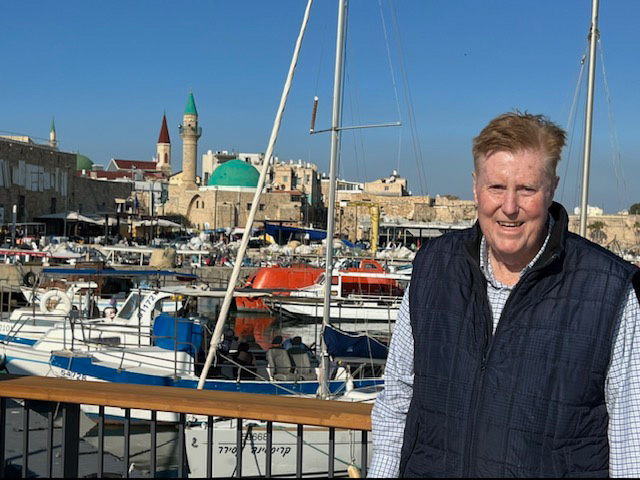
Economics Professor Jim West visits the port city of Akka (Acre) in northern Israel, one of the many places he traveled to on a recent trip.
Economics professor, James West, used his spring 2023 retirement sabbatical to travel to three very distant parts of the world. First, he was off to India where he participated in an economics conference and presented a research paper at Symbiosis University in Pune, Maharashtra. He also taught several secondary school classes at the American School of Chennai in the south India state of Tamil Nadu. He then visited many cultural and historic sites in Chennai and in the neighboring state of Kerala.
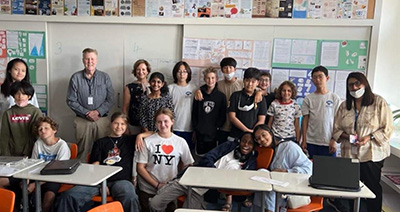
After a month in India, West traveled on to the United Arab Emirates, including the ultra-modern cities of Dubai and Abu Dhabi, before cruising through the highly strategic Straits of Hormuz in the Persian/Arabian Gulf. There he visited historic Muscat, the capital city of Oman, and reconnected with some of his Indian and Arab students from many years past. For the final stop of his journey, he visited Israel, which offered another very distinct cultural and rewarding experience. Each of these regions have fascinating histories and diverse cultural, political, and economic systems, making this trip a most interesting and enlightening sabbatical.
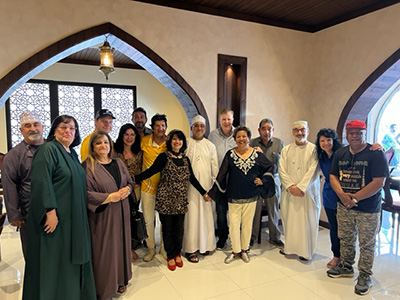
West refers to this journey as a “back to the future” trip, as he travelled a similar route at a much earlier period of his life. At the age of 23, long before he became a Moravian University economics professor, West decided to expand his geographic horizons by striking out on his own for a trip around the world. He travelled through countries in Europe and the Middle East and ultimately was offered a job with an international rural development team In Maharashtra, India. He stayed at that job for three years, learned a lot about the challenges of economic development, and had the opportunity to teach his first economics classes. Those years in India unexpectedly gave direction to his life. When he returned to the United States, he pursued his Ph.D. in economics at Lehigh University.
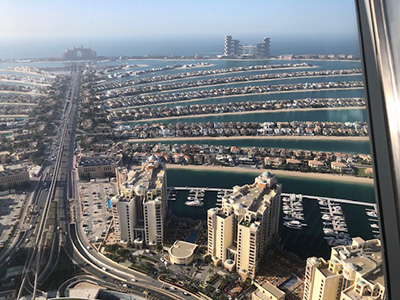
In the long span of time between West’s first travels abroad to this most recent trip, remarkable changes have taken place in that part of the world. On his first trip, West was able to travel extensively throughout Iran; since the 1979 Iranian revolution, that is no longer possible. Through the discovery and sale of oil, the countries of the Arabian peninsula, largely undeveloped in the late 1970s, have advanced and now boast ultra-modern, gleaming cities, especially Dubai. Likewise, the nation of Israel has gone through many external and internal struggles during this time, and while not endowed with oil like many of their neighbors, it has developed into a technology center and a multicultural, beautiful, dynamic place rich in religious history.
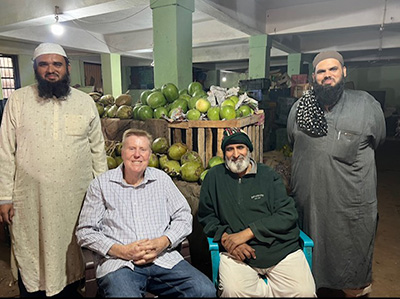
In India, where West spent the most time, then and now, he witnessed the most remarkable changes. Moving from a high-tariff, closed economy, India seized the momentum of the post-cold-war period to embrace technology and open the economy to freer trade and investment. Also, the advances in digital technology have totally revolutionized India’s communications, industry, agriculture, and the entire monetary payments system. India has made strong advances in education, notably by increasing opportunities available to women as well as members of the lower castes, who often received little or no education previously.
A central part of West’s academic teaching and scholarship has focused on understanding the dynamics of globalization. He has travelled to approximately 40 countries, and in addition to India, he worked in Slovakia as a Fulbright professor. West particularly enjoys the study of the diverse cultures and religions of these countries. On his travels he has encountered the historic sites of Hindu, Buddhist, Jewish, Zoroastrian, Christian, Sikh, Muslim, and Baha’i religions.
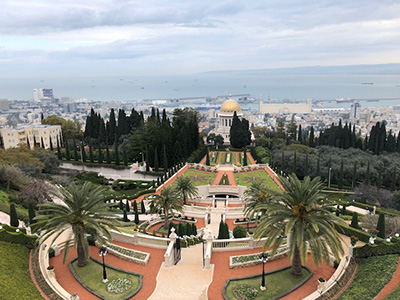
Religion is central to the lives of many people in these regions, and while the diversity of religions sometimes created discord, West believes they have much in common. He was able visit the memorial site of the Apostle St. Thomas’s trip to India in 52 AD as well as the site of the ancient first Jewish community in South India, back in the time of King Solomon. West was also able to explore incredible Hindu Temples and festivals in India, and he visited several mosques, including the immense white Sheikh Zayed Grand Mosque in Abu Dhabi, the capital city of the United Arab Emirates. Later, while in Israel, he visited some of the historic sites of the Jewish, Christian, and Islamic faiths, as well as the incredibly beautiful gardens and structure of the Baha’i Faith on Mount Carmel in Haifa. Even though economics is viewed as a practical subject, West believes that in the study of economic development, the role of religion cannot be ignored.
West concludes that, while it is impossible to recount all of the experiences of his recent travels, he hopes that this “back to the future” journey will help direct his future activities in retirement, much as the first journey led him to a wonderful career as a professor at Moravian University. He hopes that his enthusiasm for travel has helped to inspire his many students to travel, but more importantly, to be open to increasing their awareness and understanding of the rich diversity and potential of our planet.
Note: James West extends thanks to Moravian University for the sabbatical leave and conference funding which helped support this trip.